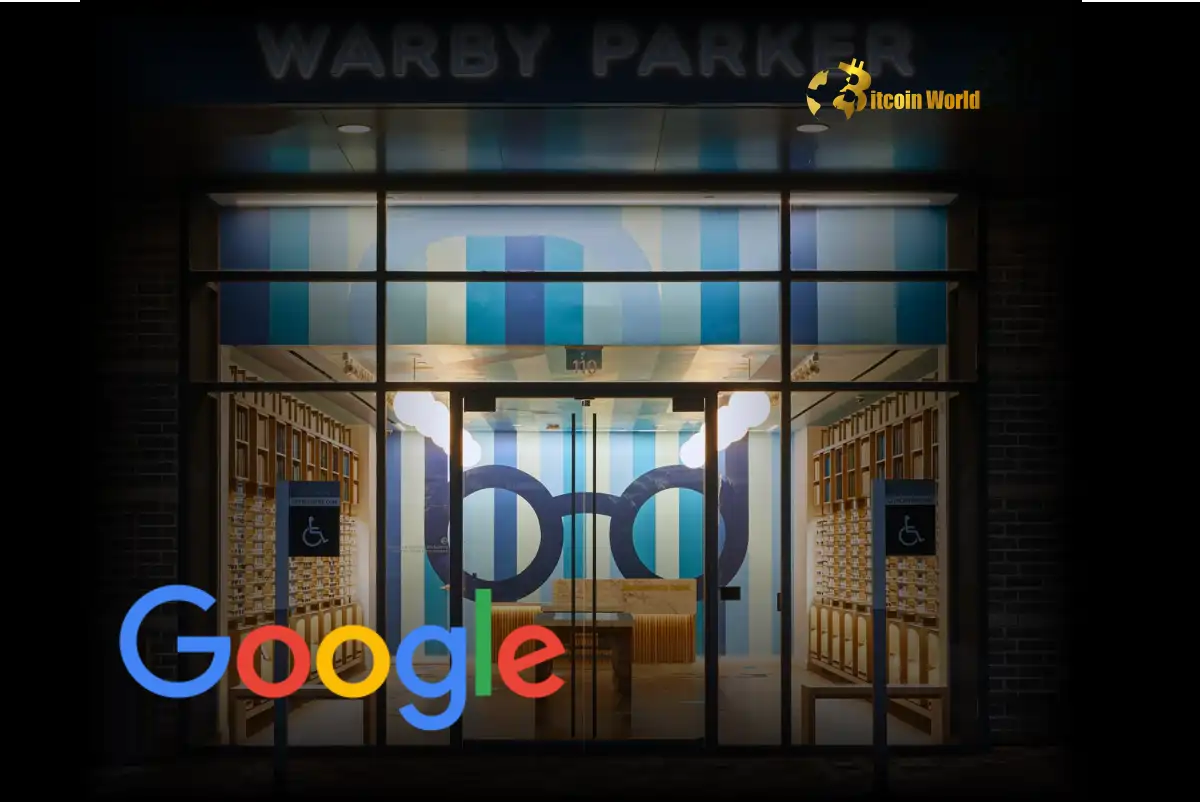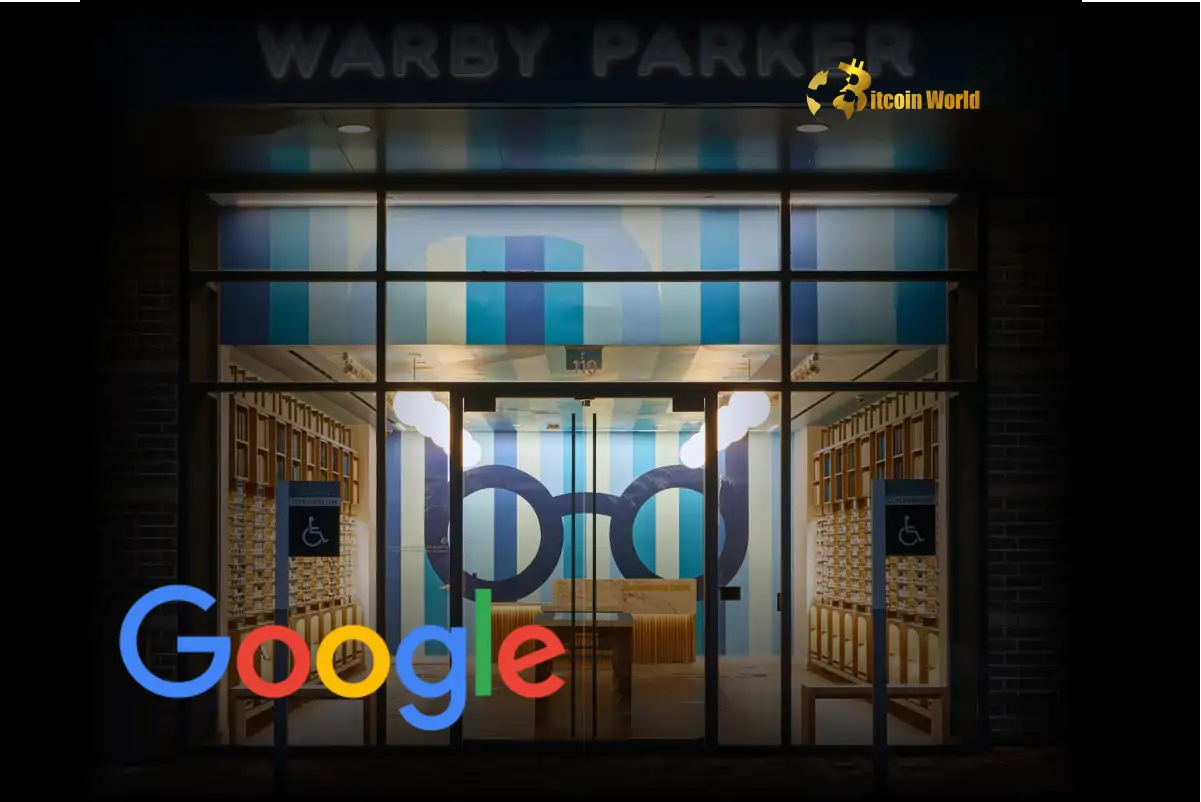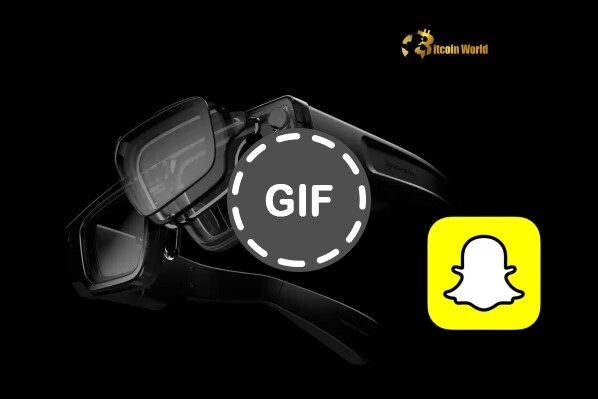BitcoinWorld

Exciting $150M Google Commitment Fuels AI Smart Glasses Development with Warby Parker
In the rapidly evolving world of technology, innovation often spills over into various sectors, including those closely watched by the cryptocurrency community for their potential to drive adoption and new use cases. A significant development announced at Google I/O 2025 points towards the next frontier in personal computing: AI smart glasses. Google revealed a substantial commitment of up to $150 million towards a joint venture with consumer eyewear giant Warby Parker to develop these advanced wearables powered by Android XR.
Unpacking the Google and Warby Parker Partnership
This collaboration between a tech titan and a popular eyewear brand signals a serious push into the consumer wearable market. Google is committing $75 million upfront to support Warby Parker’s product development and commercialization efforts for the new AI smart glasses. An additional $75 million investment, structured as an equity stake in Warby Parker, is contingent upon the eyewear company achieving specific development milestones. This phased investment approach demonstrates Google’s strategic interest in ensuring the project’s success and leveraging Warby Parker’s expertise in design, manufacturing, and retail.
What Technology Will Power the Google AI Glasses?
The core technology behind these upcoming wearables will be Android XR, Google’s platform designed for extended reality experiences. Furthermore, the glasses are slated to incorporate advanced capabilities leveraging Gemini AI, Google’s powerful artificial intelligence model, alongside augmented reality (AR) features. This combination suggests a device capable of more than just basic notifications or camera functions. We can anticipate features that utilize multimodal AI, potentially allowing the glasses to understand and interact with the user’s environment through visual and auditory input, offering real-time information, translation, navigation, and personalized assistance.
Learning from Meta’s Smart Glasses Strategy
Google’s approach with Warby Parker draws parallels to Meta’s strategy in the smart glasses space. Meta found considerable success by partnering with and investing in EssilorLuxottica, the parent company of Ray-Ban. The Ray-Ban Meta smart glasses benefited significantly from having an attractive, familiar design and being sold through established Ray-Ban retail channels. This made them more appealing and accessible to a broader consumer base compared to earlier, more overtly ‘techy’ smart glasses designs. It appears Google aims to replicate this success by partnering with Warby Parker, known for its popular and stylish frame designs, and potentially leveraging their retail presence for distribution and customer experience. This focus on design and retail accessibility is crucial for mainstream adoption of Warby Parker smart glasses.
Looking Ahead: Product Launch and Features
While the initial investment is significant, the partnership between Google and Warby Parker is described as a long-term endeavor, with plans to launch a series of products over time. The first line of eyewear is scheduled to debut sometime after 2025. These initial models are confirmed to include multimodal AI capabilities and will be available in both prescription and non-prescription options, catering to a wider range of potential users. The integration of AI into prescription eyewear is a particularly noteworthy development, merging necessary vision correction with cutting-edge technology.
Expanding Google’s Wearable Ecosystem
The Warby Parker partnership isn’t Google’s only move in the smart glasses arena. At Google I/O 2025, the company also announced collaborations with other notable companies, including Samsung and Gentle Monster, to develop smart glasses featuring Gemini AI and AR capabilities. These multiple partnerships suggest Google is building a broader ecosystem around Android XR and its AI technology, similar to its approach with Android for smartphones. This could lead to a diverse range of smart glasses entering the market, catering to different styles, price points, and use cases, all powered by Google’s underlying platform and AI.
What This Means for the Future of Wearables
Google’s substantial investment and strategic partnerships highlight the growing belief that smart glasses are poised to become the next major computing platform after smartphones. The focus on integrating powerful AI like Gemini, combined with AR capabilities and stylish, consumer-friendly designs through partners like Warby Parker, addresses many of the challenges that have hindered previous attempts at mainstream smart glasses adoption. As this technology matures, we could see smart glasses become integral tools for daily life, offering seamless access to information, communication, and enhanced reality experiences, potentially impacting everything from work productivity to social interaction and entertainment.
Conclusion: A Bold Step into the AI Wearable Future
Google’s commitment of up to $150 million to Warby Parker for the development of AI smart glasses is a clear signal of intent. By combining Google’s technological prowess in AI (specifically Gemini AI) and its Android XR platform with Warby Parker’s expertise in consumer eyewear design and retail, the partnership is well-positioned to create a compelling product. Learning from the successes of others, like Meta’s Ray-Ban collaboration, Google is prioritizing design and accessibility. While the first products are slated for ‘after 2025’, this announcement marks a significant step towards a future where intelligent, augmented reality eyewear is a common part of our lives, potentially opening up new avenues for innovation and interaction in the digital and physical worlds.
To learn more about the latest AI market trends, explore our articles on key developments shaping AI features.
This post Exciting $150M Google Commitment Fuels AI Smart Glasses Development with Warby Parker first appeared on BitcoinWorld and is written by Editorial Team





